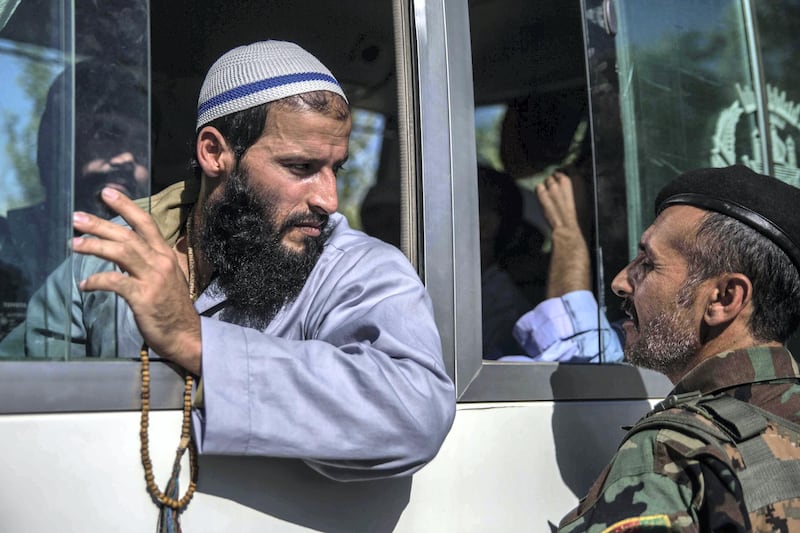The men stood silently in the hot sun, having left behind prison cells – often shared by another 20 inmates – that many called home for years, decades even.
At the Parwan Detention Facility, a prison next to the US’s Bagram Airbase, about an hour’s drive north of Kabul, 525 Taliban prisoners lined up to be released; their shoes and clothes shiny and new, their bodies quickly shoved into buses that would take them to the capital’s bus stations – and from there to their home provinces, their freedom. The only strings attached: the fighters have promised not return to the war.
When the Taliban announced a ceasefire for the Eid Al Fir holidays, the government quickly reciprocated, with President Ashraf Ghani saying he would order the release of a further 2,000 prisoners immediately. A total of 1,000 inmates have already been released over Eid with more releases planned.
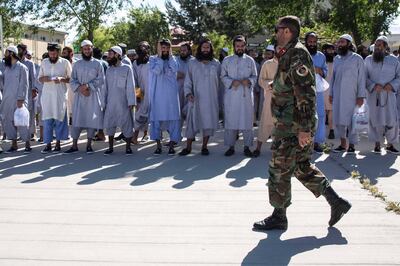
Over the holiday, violence subsided throughout the country, offering a glimpse of hope after decades of war.
Before the prisoner release, the men sign waivers, pledging not to return to the battlefield. “We did our best to advise them and prepare them for life after prison, hoping they will keep their word,” explained Major General Noorullah Kaderi, the prison’s military police commander. “The rest is up to them.”
According to Nasifullah Totakhail, a member of the ministry of defence’s release committee, about 17,000 Taliban prisoners are still held in government detention throughout the country.
The release, a prerequisite for the start of direct negotiations between the militants and the Afghan government, has been welcomed by the Taliban, who called it “good progress”, but has likewise been criticised by many who fear the freed inmates might take up weapons again.
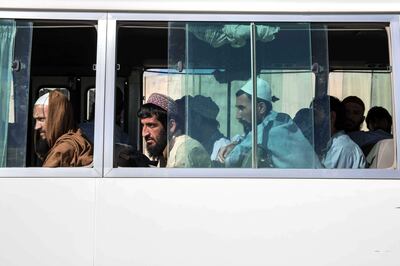
“Of course some of them will rejoin the Taliban. It all depends on people’s mindsets, not on a waiver they are signing,” said Hasifullah Hussain, a 34-year-old who spent the past six years at the detention facility. “The way we were treated here was inhumane and un-Islamic. Many were beaten badly. It’s my wish to see peace for everyone in this country.”
Another fighter, Abdullah Wasi, 27, said after his release he would do “whatever God asks of me.”
He had spent the past eight years in prison, joining the Taliban as a teenager – like most other fighters, according to him.
“The ceasefire is good for all of us, but I am not sure about peace,” he said, pushing his thumb into an ink pad, fingerprinting the last few documents before his freedom. "Of course we need peace, but how will all sides come together?”
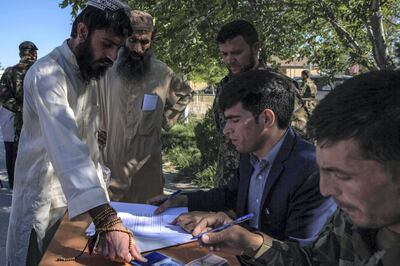
Mr Wasi isn’t alone with his scepticism. “The peace agreement with the US emboldened the Taliban to sustain their violence campaign to seek total victory over Afghan security forces,” said Fawzia Koofi, one of the few women that’s part of the government’s negotiation team with the militants.
Yet the ceasefire was necessary to prevent an already vulnerable peace process from falling apart.
“May 12 was a critical date,” explained the International Crisis Group’s Andrew Watkins, referring to the brutal attack on a Kabul maternity ward. “No matter which militant group carried out the attack, popular anger evaporated what little atmosphere for talking with the Taliban remained in Kabul.
"The government had already been resistant to a rapid beginning of intra-Afghan talks, but this attack was sufficient justification to stop moving forward. That in turn threatened to worsen a retaliatory cycle of violence between the government and the Taliban," he told The National.
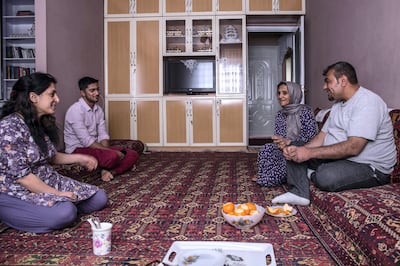
The Eid Al Fitr days remained quiet, with police blocking Kabul’s roads and most families staying inside, celebrating with close relatives.
“We needed this quiet time,” explained Marwa Faizi, a 26-year-old teacher. “The violence has been crushing. Every Afghan – every woman and every man and every child want peace. The war is weighing heavy; we want to breathe freely.”
